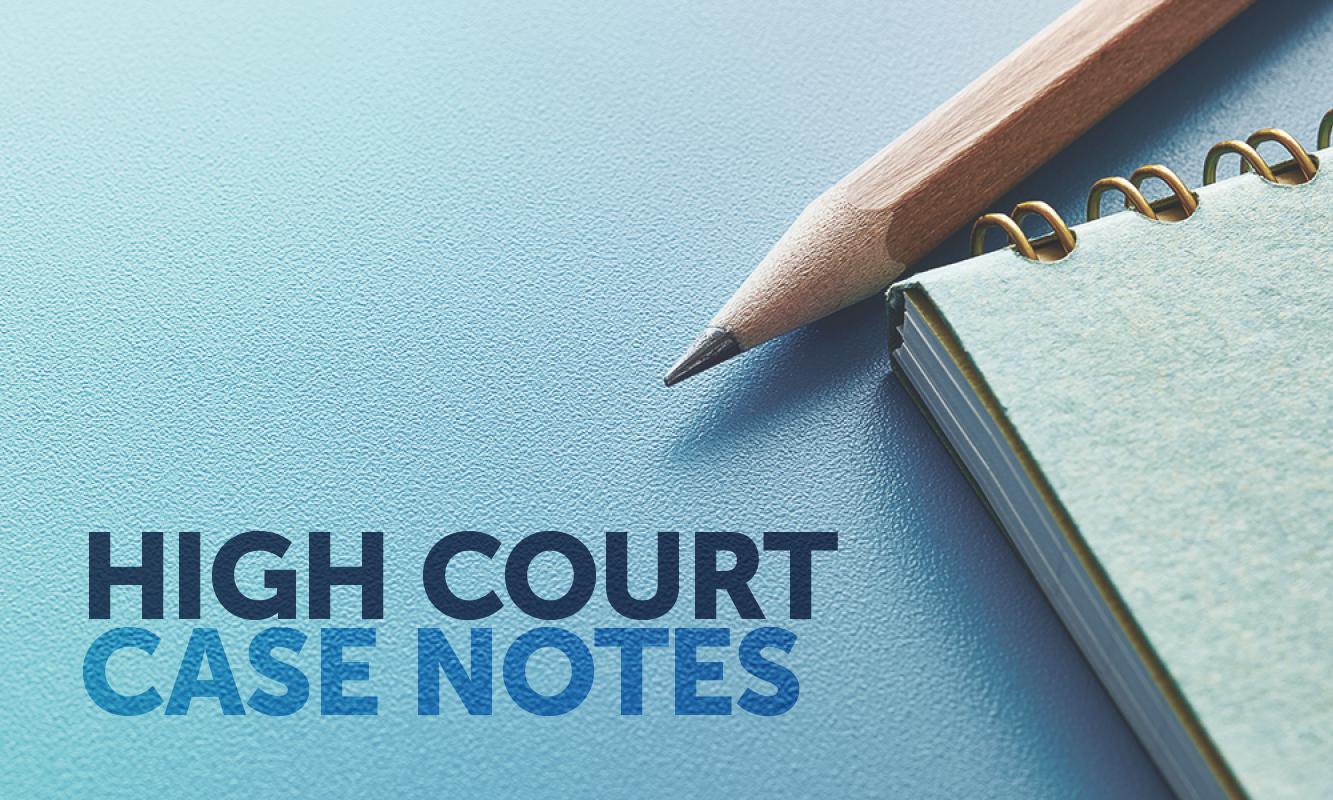In Carmichael Rail Network Pty Ltd v BBC Chartering Carriers GmbH [2024] HCA 4 (14 February 2024), the High Court was required to consider the proper construction of Art 3(8) of the “Australian Hague Rules”, incorporated into Australian law by s8 of the Carriage of Goods by Sea Act 1991 (Cth) (COGSA).
The Australian Hague Rules consist of the text in Schedule 1 to the COGSA as modified, pursuant to s7(1) of the COGSA, in accordance with the modifications set out in Schedule 1A to the COGSA. The text in Schedule 1 of the COGSA is the English translation of Articles 1 to 10 of what is known as the “Brussels Convention” as amended by the “Visby Protocol” and the “SDR Protocol” (Hague-Visby Rules).
Article 3(8) of the Australian Hague Rules relevantly provides that any “clause, covenant, or agreement in a contract of carriage relieving the carrier of the ship from liability for loss or damage to . . . goods . . . or lessening such liability otherwise than as provided in these Rules, shall be null and void and of no effect”.
The appellant (Carmichael), the shipper, contracted with the second respondent (OneSteel) for the manufacture and supply of head-hardened steel rails.
OneSteel manufactured the rails and, pursuant to a booking note between the first respondent (BBC), the carrier and Carmichael’s agent, arrangements were made for the rails to be shipped by sea from South Australia to Queensland.
On the day that the rails were loaded onto the ship, BBC issued a bill of lading for the rails to Carmichael’s agent. The bill of lading contained clauses that provided that any dispute arising under or in connection with the bill of lading shall be referred to arbitration in London (cl 3) and English law is to apply to the arbitration (cl 4).
During the sea voyage the rails became so badly damaged that they were unusable. BBC commenced an arbitration proceeding in London. Carmichael commenced proceedings in the Federal Court seeking damages and brought an application to restrain BBC from proceeding with the arbitration. BBC, in turn, brought an application to stay the Federal Court proceeding pursuant to s7 of the International Arbitration Act 1974 (Cth) (International Arbitration Act).
The application “stand-off” was heard by the Full Court of the Federal Court of Australia. The Full Court resolved the dispute on the basis of an undertaking given by BBC. That undertaking included admitting, in the London arbitration, that the Australian Hague Rules applied to the bill of lading.
Carmichael was granted special leave to appeal. Before the High Court Carmichael argued that cl 4 of the bill of lading was void under Art 3(8) of the Rules because the clause lessened BBC’s liability in three ways.
First, Carmichael asserted that there was a risk that the London arbitrators would apply, in accordance with the English law, the Hague-Visby Rules which imposed a delegable responsibility on BBC for carriage of the rails (as opposed to the non-delegable responsibility under the Australian Hague Rules).
Second, Carmichael asserted that there was a risk that the English arbitrators would construe, under English law, the bill of lading as only incorporating Arts 1 to 8 of the Hague Rules. Third, Carmichael pointed to the expense and practical difficulty it would encounter if forced to pursue its claims in an arbitration in London.
The High Court unanimously dismissed Carmichael’s appeal.
The High Court noted, at [24], that s7(5) of the International Arbitration Act provides that a Court will not stay legal proceedings if the Court finds the arbitration agreement to be (and not might be) null and void. The High Court also noted, at [25], that such a finding would have to be on agreed, admitted or proved facts. As to Art 3(8) of the Australian Hague Rules, the High Court at [32] held that references to a clause “relieving” a carrier from liability or “lessening such liability” are “to be understood as referring to facts able to be found in accordance with the requisite degree of confidence, at least on the preponderence of the evidence”.
As to the first two risks identified by Carmichael, as relieving or lessening BBC’s liability, the High Court at [62] and [65] considered that this was not made out on the balance of probabilities in circumstances where BBC had given an undertaking.
As to the third matter, the expense and difficulties of pursuing a claim in a London arbitration, the High Court observed, at [69], that “there are no meaningful criteria by which it can be said that such greater cost in fact relieves or or lessens BBC’s liability otherwise than in accordance with the Australian Hagues Rules”.








Share this article